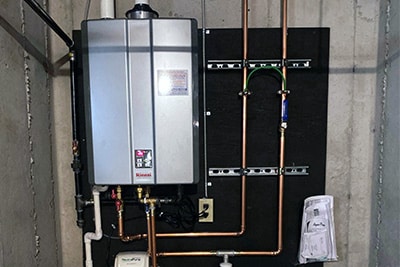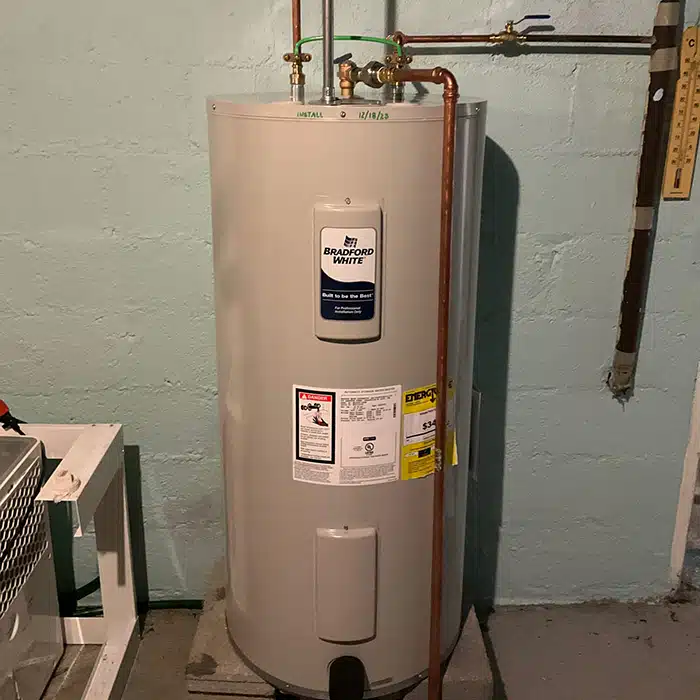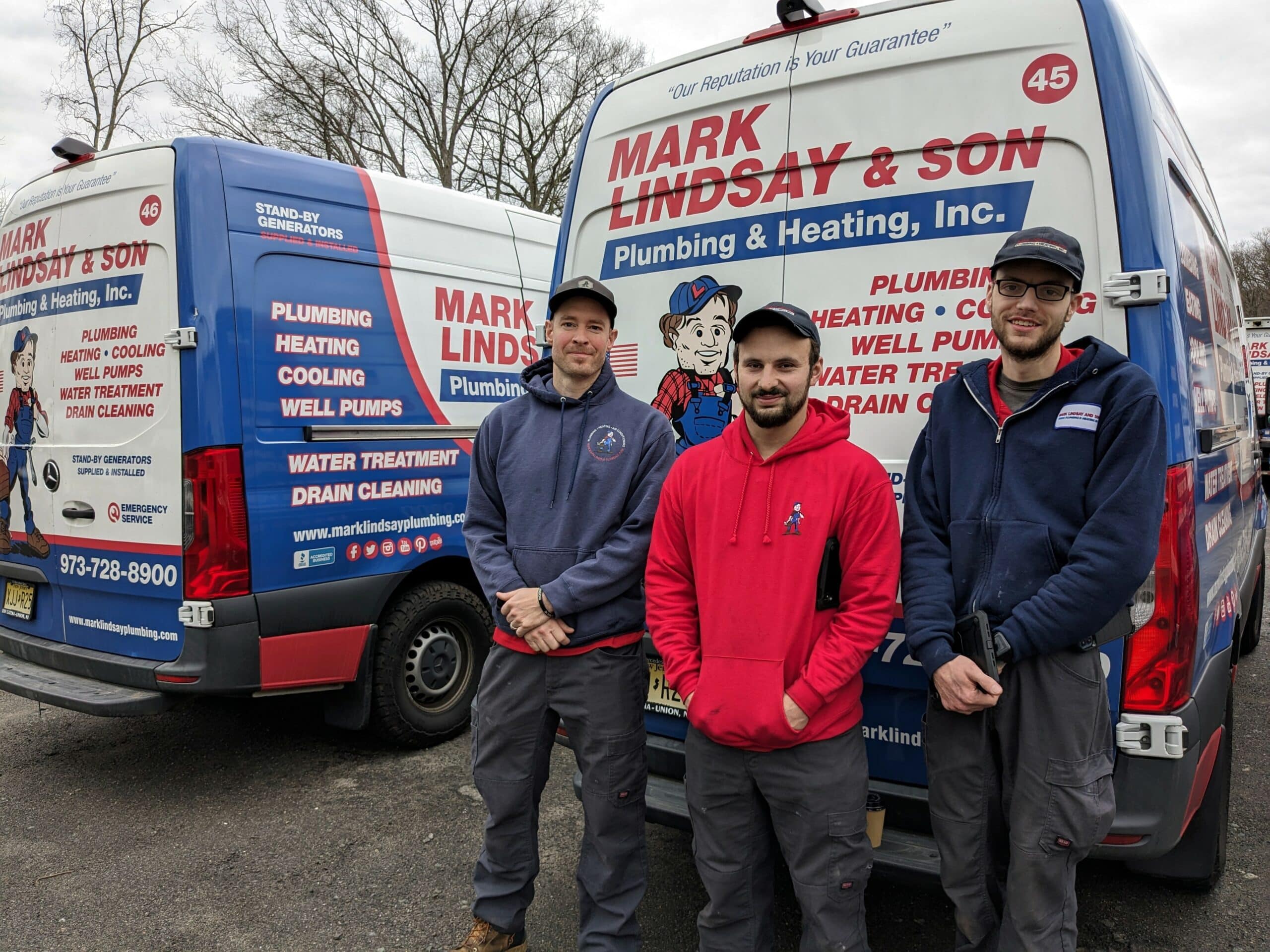Tankless Water Heaters
Our water heater service includes tankless water heaters, too. If you have one of these that needs repair or you’d like to get one, we’ll come out and help you get exactly what you’re looking for. Our plumbers will get you the best tankless water heater for your home and set it up for you fast.
Pros:
- Saves energy. The unit only operates when there is a demand for hot water, which can reduce its energy cost by about 25% annually.
- Highly efficient. The most efficient storage tank has an energy factor of about .67, but, according to Energy Star, some tankless units have energy factors as high as .95.
- Reliable. If a unit is sized properly, a gas tankless heater can deliver a continuous supply of water at a preset temperature (plus or minus one degree) at a rate of typically 2 gallons to 5 gallons per minute. The units never run out of hot water, though the flow rate may be inadequate during times of peak demand.
- Compact size. The typical tankless heater is about the size of a small suitcase, which takes up significantly less space than a conventional tank.
- Durable. It has a life expectancy of 20 years or more.
- Versatile. The unit is easy to zone and it can go almost anywhere in the house. It also can be installed outside on a wall.
Cons:
- More expensive. Tankless units cost about twice as much as traditional storage tanks.
- Installation is expensive. In addition to the high product cost, installation for the unit and the necessary piping can be pricey. They also need very good venting, which is also expensive.
- Retrofit can be pricey and complicated. Unlike a traditional tank, retrofitting a home with a tankless unit can require different venting and gas piping.
- Best performance comes from gas units. Though gas-fired tankless units are great performers for whole-house use, electric units are woefully inadequate. Electric units are not Energy Star-rated.




